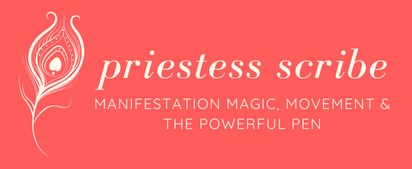Duds, all of them. I felt the words running through my head, along with my own frustration. Known as a lively, engaging teacher and facilitator, I couldn’t seem to get the room full of hopeful writers to respond.
 |
| The room full of hopeful writers wouldn't respond. Was it the rain? |
Was it because it was Monday? Was it because it was raining? Did they eat breakfast? Or were they completely brain dead? I decided to go with the latter, and awaken the zombies. After all, they needed their brains as well as their bodies if they planned to write anything worth reading.
As a writer and dancer, I know what most of the individuals in the room do not. That word and breath are intrinsically connected. That the sacred act of communication and human understanding starts in the body. I take a deep breath, and shift gears. I clear my head, step into presence.
“Okay, everybody stop what you’re doing. Put down your pencils. I’m putting on a piece of music. Pick out one of the instruments, and move around the room acting as though you’re that instrument come to life.
Don’t think, just move.”
I have one of the participants turn out the lights; there’s enough coming in the window. I set the ground rules: each person must move around the room at least once; no touching or bumping; be willing to risk. I start the track, and then, because there’s a pause of disbelief, I join in, encourage, direct traffic.
“If you don’t know what to do, just walk around to the rhythm of the music and swing your arms,” I prompt. In about three minutes, I stop the sound.
“Now, return to your places. Share with the others in your group what instrument you chose and how it felt to move that way. Use adjectives and action verbs. When you feel complete verbalizing your experience, begin writing.”
Workshop facilitators have a lot of tricks to focus participant attention. They put candy on the table. They ask you to do something with a piece of string, or to introduce yourself to the person sitting next to you and share the name of a book you’ve read recently. Rarely do they ask participants to awaken the whole body and brain before learning a difficult topic, solving a problem, or engaging at a deeper level. But as a workshop facilitator, I expect nothing less. So, we dance. We write. And we move through the process of creating symbolic meaning systems to be shared.
Formalistic writing is a metaphor for choreography. Logical, it deliberately crafts meaning from a set of available words and images. Often, it interprets that meaning for the audience from a third person perspective, the framing of the piece akin to a proscenium arch. The form of writing, like that of a set piece, is replicable, performable, and audience building. Reading dances becomes an art.
Conversely, spontaneous movement may be more like journaling. The individual moves through the body of emotion, being rather than interpreting. In the moment, the mover releases or embodies meanings stored within the body. The interpretation comes later, formally or informally, as the audience for their insights comes from shared experience through the dance. Sometimes the sharing is verbal, sometimes written. The sharing of experience creates community and communal meaning systems, from which individual meaning may be derived.
Dance may begin in the breath, but community is found in the rhythm of the heartbeat.
As a workshop facilitator, I have used both choreographed and spontaneous dance to access the inner landscape of each participant in order to increase the ability to create, transform, learn, apply, describe, feel, understand, communicate, support, and manifest. As I have used dance to teach writing, I have also used writing, from poetry to punctuation, to manipulate rhythm and breath. As a writer and a dancer, I seek conscious and unconscious meaning from saturated muscle and sinew.
Dance eradicates boundaries we didn’t know we had, and erases dividing lines between hearts and minds, cultures and beliefs. Once we dance, words don’t get in the way.
Sherri L. McLendon, M.A., author of The Priestess Scribe, enjoys recognition as a writer, educator, sacred dance facilitator, and divine feminine business leader.
